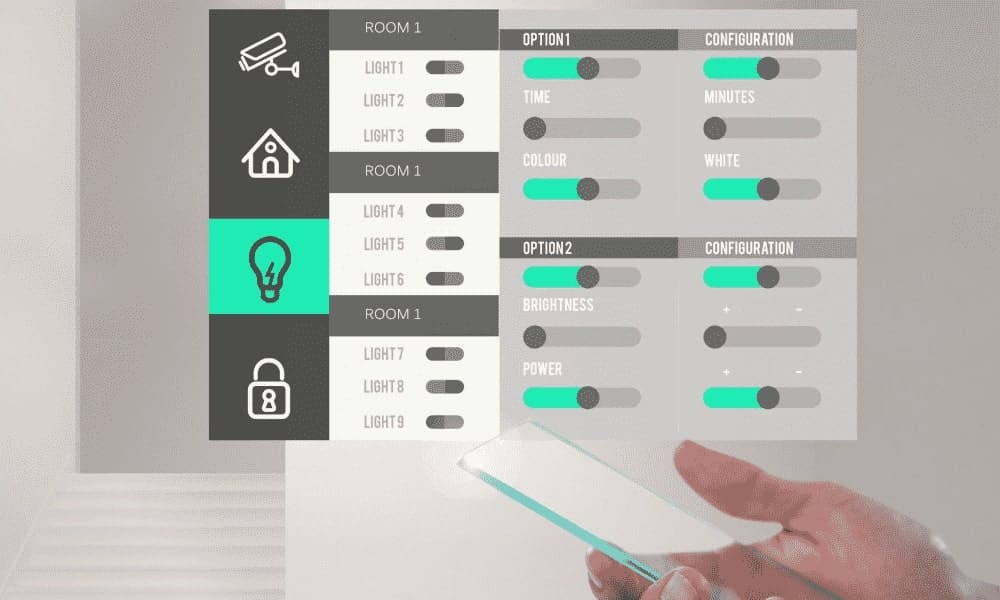Axis Consulting offers expert Zendesk integration solutions, seamlessly connecting your business’s customer service platform with essential tools and systems. We streamline workflows and enhance your customer support infrastructure by integrating Zendesk with your existing digital ecosystems, including CRM software, helpdesk solutions, e-commerce systems, and communication tools.
Unlock Zendesk’s full potential with our custom integration strategies designed to enhance efficiency and deliver outstanding customer service experiences. Trust Axis Consulting to maximize your business efficiency and elevate your support strategy to new heights.
Table of Contents
ToggleWhy Zendesk Integration Matters?
Create a seamless support experience with Zendesk integration that’s responsive, scalable, and data-driven.
Efficiency: Integrating Zendesk with other platforms removes manual work, enabling automated workflows that save time, reduce errors, and improve performance.
Unified Customer Experience: Integration ensures a smooth customer journey by centralizing customer data and aligning communication channels.
Scalability: Integrated systems expand with your business, adapting to changes in customer volume, support complexity, and operational demands.
Benefits of Zendesk Integration Services
Understanding Zendesk integration services is crucial for businesses seeking to enhance their customer experience and streamline support operations.
Improved Productivity: Centralizing customer information and tools helps streamline workflows and boosts agent effectiveness.
Enhanced Customer Satisfaction: Integration enables quicker response times, personalized experiences, and omnichannel support, driving customer satisfaction and loyalty.
Data-Driven Insights: Integrated platforms offer detailed analytics, enabling businesses to make informed decisions and improve service delivery.
Why Choose Zendesk Integration Services?
Choosing Zendesk integration services offers distinct advantages over standalone customer support platforms. Here’s why businesses invest in Zendesk integration:
Streamlined Operations
Integrating Zendesk with other systems unifies data, enhancing operational efficiency. This reduces silos, minimizes redundancy, and enables cohesive collaboration.
Enhanced Customer Experience
Zendesk integration ensures a consistent experience across multiple channels like email, chat, social media, and phone. Access to CRM data allows teams to respond more effectively.
Scalability and Flexibility
Integrated solutions scale and adapt with your business. Whether you’re growing your support teams or expanding into new markets, Zendesk integration supports your dynamic needs.
Comprehensive Data Insights
Zendesk integration delivers actionable insights and metrics. Track KPIs, monitor agent productivity, and continually refine service approaches.
Competitive Advantage
Exceptional support through Zendesk integration offers a distinct edge. Better service fosters trust, retention, and long-term customer relationships.
Common Integration Scenarios

Zendesk integration services adapt to a wide range of business cases. Common scenarios include:
CRM Integration
Businesses often integrate Zendesk with Customer Relationship Management (CRM) software, such as Salesforce, HubSpot, or Microsoft Dynamics.
Purpose: Integrating Zendesk with CRM systems allows businesses to centralize customer information, track interactions, and provide personalized support based on customer history and preferences.
Benefits: Enhanced customer insights, streamlined workflows, improved lead management, and better collaboration between sales and support teams.
Helpdesk Integration
Many businesses integrate Zendesk with other helpdesk solutions, such as Jira Service Desk, Freshdesk, or Zoho Desk.
Purpose: Integrating Zendesk with helpdesk platforms enables businesses to manage support tickets more efficiently, automate workflows, and provide seamless multi-channel support.
Benefits: Faster ticket resolution, improved agent productivity, better customer communication, and streamlined incident management processes.
E-commerce Integration
E-commerce businesses integrate Zendesk Consulting with platforms like Shopify, WooCommerce, or Magento.
Purpose: Integrating Zendesk with e-commerce platforms allows businesses to provide personalized customer support during the shopping and post-purchase stages, track order inquiries, and resolve issues promptly.
Benefits: Enhanced customer satisfaction, reduced cart abandonment, improved order management, and seamless communication between support and sales teams.
Communication Integration
Businesses integrate Zendesk with communication tools such as Slack, Microsoft Teams, or Zoom.
Purpose: Integrating Zendesk with communication platforms facilitates real-time collaboration, improves internal communication, and enables support agents to access information and resolve issues more efficiently.
Benefits: Faster response times, improved team collaboration, reduced communication silos, and better visibility into support operations.
By understanding these common integration scenarios, businesses can identify opportunities to leverage Zendesk integration services, streamline operations, enhance the customer experience, and improve overall efficiency.
Key Features of Zendesk Integration Services

Zendesk integration services offer many features and functionalities to enhance customer support operations and streamline workflows. Here are some key features of Zendesk integration services:
Ticket Synchronization
Zendesk integration allows seamless synchronization of support tickets across integrated platforms, ensuring that all customer inquiries are centralized and accessible from a single dashboard.
Benefits: Improved ticket management, reduced duplication of efforts, and better coordination between support teams.
Unified Customer Data
Integrating Zendesk with CRM systems or other customer databases enables businesses to maintain a unified view of customer data, including contact information, purchase history, and previous interactions.
Benefits: Personalized support experiences, faster issue resolution, and enhanced customer satisfaction.
Automated Workflows
Zendesk integration services support the automation of repetitive tasks and workflows, such as ticket routing, assignment, and follow-up notifications.
Benefits: Increased operational efficiency, reduced manual intervention, and faster resolution times for customer inquiries.
Omnichannel Support
Zendesk integration allows businesses to offer support across multiple channels, including email, chat, social media, phone, and self-service portals.
Benefits: Seamless customer experiences across channels, improved accessibility, and greater flexibility in communication.
Reporting and Analytics
Integrated systems offer robust reporting and analytics capabilities, enabling businesses to track key metrics, monitor performance, and gain valuable insights into customer behavior and support trends.
Benefits: Data-driven decision-making, optimization of support strategies, and identification of areas for improvement.
Customization and Flexibility
Zendesk integration services offer flexibility and customization options to cater to the distinct needs and workflows of various businesses.
Benefits: Tailored solutions, scalability, and the ability to integrate with third-party applications and systems.
By leveraging these key features of Zendesk integration services, businesses can optimize their customer support operations, improve efficiency, and deliver exceptional customer experiences.
Future Trends in Zendesk Integration

As technology continues to evolve, the landscape of Zendesk integration is also expected to undergo significant changes. Here are some future trends in Zendesk integration to watch out for:
AI-Powered Automation
With advancements in artificial intelligence (AI) and machine learning, Zendesk integration will likely incorporate AI-powered automation for ticket routing, sentiment analysis, and automated responses. This automation will enhance efficiency and provide more personalized customer experiences.
Integration with Emerging Communication Channels
As new communication channels emerge, such as messaging apps, social media platforms, and chatbots, Zendesk integration will adapt to incorporate these channels seamlessly. Businesses can provide support across a broader range of platforms, meeting customers where they are.
Deeper CRM Integration
Integration between Zendesk and CRM systems will become even more seamless, allowing for deeper integration of customer data and insights. This integration will enable businesses to deliver highly personalized support experiences based on comprehensive customer profiles.
IoT Integration
With the rise of the Internet of Things (IoT), Zendesk integration may extend to IoT devices and sensors, enabling proactive support and predictive maintenance. Businesses can anticipate and resolve issues before they impact the customer experience.
Enhanced Analytics and Reporting
Future Zendesk integration services will offer enhanced analytics and reporting capabilities, leveraging big data and predictive analytics to provide deeper insights into customer behavior and support trends. This data-driven approach will enable businesses to make more informed decisions and optimize support strategies.
Cross-Platform Integration
Integration between Zendesk and other business platforms, such as project management tools, marketing automation software, and e-commerce platforms, will become more seamless. This cross-platform integration will enable businesses to streamline workflows and improve collaboration across departments.
By staying informed about these future trends in Zendesk integration, businesses can prepare for upcoming developments and leverage the latest technologies to enhance their customer support operations.
Conclusion
Zendesk integration is key to unlocking streamlined operations and elevated customer support capabilities. By seamlessly connecting Zendesk with other business tools and platforms, businesses can enhance productivity, improve customer satisfaction, and gain valuable insights.
With the proper implementation steps and best practices, companies can optimize their support operations and stay ahead of the competition. As technology evolves, embracing future trends in Zendesk integration will further empower businesses to meet the changing needs of their customers and drive growth. Trust in the power of Zendesk integration to propel your business forward and deliver exceptional customer experiences.
Key takeaways
Zendesk integration is essential for modern support systems. It helps businesses gain agility, quality, and efficiency. With seamless integrations, companies can offer a faster, more innovative, and more personalized customer experience. With Experts’ help from Axis Consulting, you’ll get expert deployment, future-ready integrations, and scalable success in your customer experience strategy. We ensure that every integration aligns with your business goals and delivers measurable ROI.
FAQs
What platforms can Zendesk integrate with?
Zendesk can integrate with CRMs, e-commerce platforms, helpdesk systems, communication tools, and project management software.
Is Zendesk integration suitable for small businesses?
Yes. Zendesk integration is scalable and customizable, making it ideal for startups, mid-sized companies, and large enterprises alike.
How long does a typical Zendesk integration take?
The timeline varies based on complexity but generally ranges from a few days to several weeks, including testing and training.
Does Axis Consulting offer custom integration development?
Absolutely. We build custom workflows and connectors tailored to your business’s tools, processes, and unique support needs.
Can integrations improve my customer satisfaction score (CSAT)?
Yes. Faster response times, personalized service, and unified customer data often result in higher CSAT ratings.